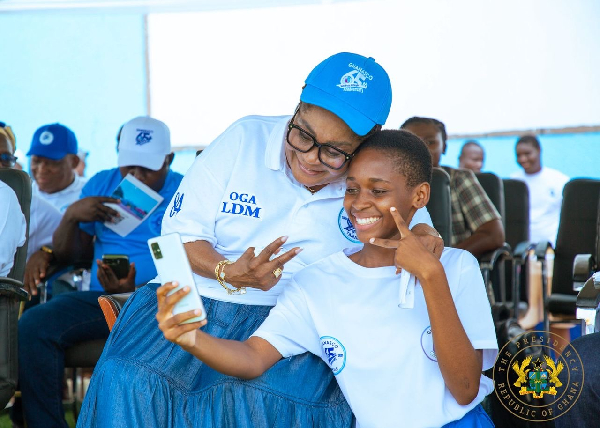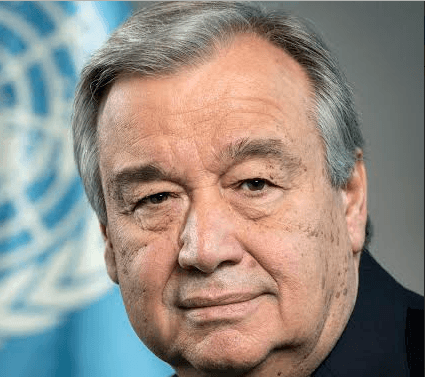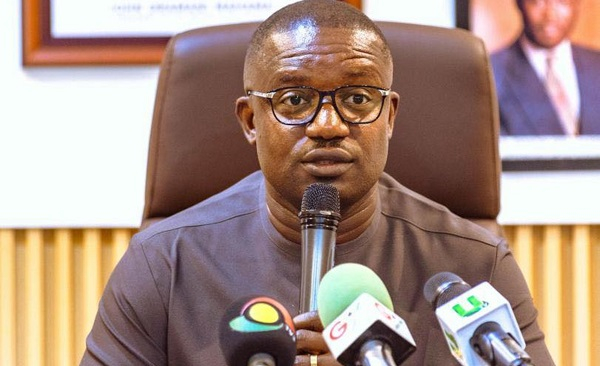Edudzi Tameklo on why Ghanaians don't trust the judiciary
Speaking on TV3’s Key Points programme on Saturday, May 24, 2025, Mr Tameklo described the situation as a clear case of institutional failure.
He accused the General Legal Council (GLC), the Chief Justice, and the immediate past Attorney-General Godfred Yeboah Dame of applying the law inconsistently depending on who is involved.
Mr Tamaklo questioned the GLC’s failure to take action against Mr Dame after the release of a widely circulated recording in which the Attorney-General is alleged to be coaching an accused person on how to shape their testimony.
“The General Legal Council doesn’t need a petition to act,” he said. “Under Section 18 of the Legal Profession Act, 1960 (Act 32), they can summon any lawyer on their own motion. In 2021, they acted against Dr Dominic Ayine without a petition. So why didn’t they act on Dame? Simple. He was untouchable.”
He claimed that at the last Bar Conference in Kumasi, the controversy had become so intense that some GLC members insisted Mr Dame should apologise before addressing the gathering.
“You heard the tape yourself, a sitting Attorney-General telling an accused person how to frame testimony. That’s a violation of Rule 54 of the Legal Profession (Professional Conduct and Etiquette) Rules, 2020,” he said.
Commenting on the Chief Justice’s legal challenge seeking to disqualify Justice Gabriel Pwamang and others from sitting on the committee investigating her conduct, Mr Tamaklo said the move lacked merit and showed inconsistency in the application of legal standards.
“She’s claiming bias because Justice Pwamang ruled in favour of a petitioner. But in Daniel Ofori v. ECG (2023), the Supreme Court removed her from a case for the same reason, conflict of interest. That was a unanimous decision,” he said. “Now she’s doing exactly what she was once disqualified for. That’s not law, it’s desperation.”
Mr Tamaklo also questioned the attempt to remove Justice Adibu-Asiedu from the committee, noting that the Chief Justice herself empaneled him. “This is not how judicial independence works,” he said.
He also pushed back against claims that the Chief Justice could waive her right to a private hearing and opt for public proceedings, describing such arguments as flawed.
“Article 146(8) says all proceedings shall be in-camera. It doesn’t say ‘may be.’ Unlike Article 18(2), which explicitly allows a person to waive privacy rights, the framers of the Constitution deliberately left out that option in Article 146,” he said. “You can’t waive what the Constitution doesn’t permit.”
Turning to the recent police action against Alfred Kumi, the man whose petition touched on a said meeting between some members of the committee and lawyer Thaddeus Sory, Mr Tamaklo described the National Intelligence Bureau’s response as reckless and excessive.
“Kumi exaggerated claims about a so-called ‘secret dinner’ between judges. But even if his claims were untrue, does that justify 15 armed officers storming his house at dawn? This is not how you treat a citizen with a political grievance. A phone call would have sufficed,” he said.
He added that CCTV footage later showed judges and lawyers seated at separate tables in a restaurant, which he said undermined the suggestion of a planned meeting.
Mr Tamaklo concluded that the situation reflects deeper problems in the justice system that go beyond individual misconduct.
“This is why Ghanaians don’t trust the judiciary,” he said. “When a Chief Justice hires an Attorney-General caught on tape encouraging perjury, and judges apply different rules to themselves, we erode public confidence. The law must be no respecter of persons, whether you’re the Chief Justice or a market trader.”
He warned that unless legal institutions consistently follow the Constitution and their own rules, the justice system could lose its legitimacy in the eyes of the public.
“We are watching the slow corrosion of judicial credibility,” he said. “The public sees the silence, the shifting standards, and they stop believing in justice. That is the real danger.”











